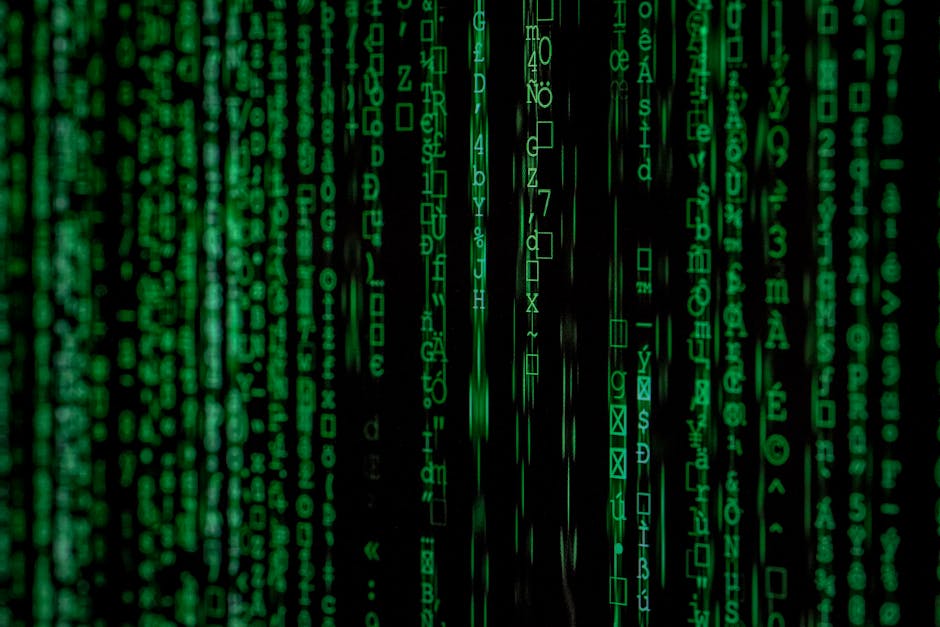The Basics of Cyber Hygiene and Why It Matters
In today’s digital age, where technology plays a significant role in our daily lives, the concept of cyber hygiene has become increasingly crucial. From personal data security to safeguarding sensitive information in businesses, understanding the basics of cyber hygiene is essential for everyone. But what exactly is cyber hygiene, and why does it matter? In this comprehensive guide, we will delve into the fundamentals of cyber hygiene, exploring its significance in our interconnected world.
The Threat Landscape of Cybersecurity

Cyber threats are constantly evolving, becoming more sophisticated and targeted. Hackers and cybercriminals are always on the lookout for vulnerabilities to exploit, whether it’s through malware, phishing attacks, ransomware, or other malicious tactics. Without proper cybersecurity measures in place, individuals and organizations are at risk of falling victim to cyber attacks that can have devastating consequences.
By practicing good cyber hygiene, individuals and organizations can significantly reduce their exposure to cyber threats. Cyber hygiene encompasses a set of best practices and habits that help maintain the security and integrity of digital systems and data. Just as personal hygiene is essential for maintaining physical health, cyber hygiene is critical for safeguarding against online threats.
Components of Cyber Hygiene

There are several key components of cyber hygiene that individuals and organizations should prioritize to enhance their cybersecurity posture:
Password Security
One of the most basic yet crucial aspects of cyber hygiene is password security. Using strong, unique passwords for each online account and regularly updating them can help prevent unauthorized access to sensitive information. Implementing multi-factor authentication (MFA) adds an extra layer of security, requiring users to provide additional verification beyond just a password.
Software Updates
Keeping software and operating systems up to date is essential for addressing security vulnerabilities and patching potential entry points for cyber attacks. Cybercriminals often target outdated software to exploit known weaknesses, making regular updates a critical part of cyber hygiene.
Phishing Awareness
Phishing attacks remain a prevalent threat in the cybersecurity landscape, with cybercriminals using deceptive tactics to trick individuals into divulging sensitive information. Educating users about the signs of phishing emails and messages can help prevent falling victim to these scams, enhancing overall cyber hygiene.
Data Encryption
Encrypting sensitive data both at rest and in transit adds an extra layer of protection, ensuring that even if data is compromised, it remains unintelligible to unauthorized parties. Utilizing encryption protocols and tools is a fundamental aspect of maintaining strong cyber hygiene.
Network Security
Securing networks through firewalls, intrusion detection systems, and regular monitoring is essential for preventing unauthorized access and detecting potential threats. Implementing robust network security measures is a cornerstone of effective cyber hygiene practices.
The Importance of Cyber Hygiene

Effective cyber hygiene is not just a matter of personal responsibilityit has broader implications for society as a whole. In an interconnected world where digital systems underpin critical infrastructure, the impact of cyber attacks can be far-reaching and severe. By practicing good cyber hygiene, individuals and organizations contribute to a more secure online environment for everyone.
Additionally, maintaining strong cyber hygiene can help mitigate the financial and reputational risks associated with cyber attacks. Data breaches and security incidents can have significant consequences, ranging from financial losses to damage to brand reputation. By prioritizing cyber hygiene, organizations can reduce the likelihood of falling victim to cyber threats and minimize the potential impact of security incidents.
Common Misconceptions About Cyber Hygiene

Despite the critical importance of cyber hygiene, there are several common misconceptions that can hinder its adoption:
It’s Only for IT Professionals
While IT professionals play a crucial role in implementing cybersecurity measures, cyber hygiene is everyone’s responsibility. From employees in organizations to individual users at home, practicing good cyber hygiene is essential for protecting against online threats.
It’s Too Complicated
While cybersecurity can be a complex field, basic cyber hygiene practices are straightforward and accessible to all. Simple steps such as using strong passwords, updating software, and being vigilant against phishing can significantly enhance cybersecurity without requiring advanced technical knowledge.
Conclusion
In conclusion, the basics of cyber hygiene are foundational to maintaining a secure online environment for individuals and organizations alike. By prioritizing password security, software updates, phishing awareness, data encryption, and network security, individuals can significantly reduce their risk of falling victim to cyber attacks. The importance of cyber hygiene extends beyond personal responsibility to societal impact, contributing to a safer and more resilient digital ecosystem.
As cyber threats continue to evolve and become more sophisticated, the need for strong cyber hygiene practices has never been greater. By staying informed, implementing best practices, and remaining vigilant against online threats, we can all play a role in enhancing cybersecurity and safeguarding our digital world.




